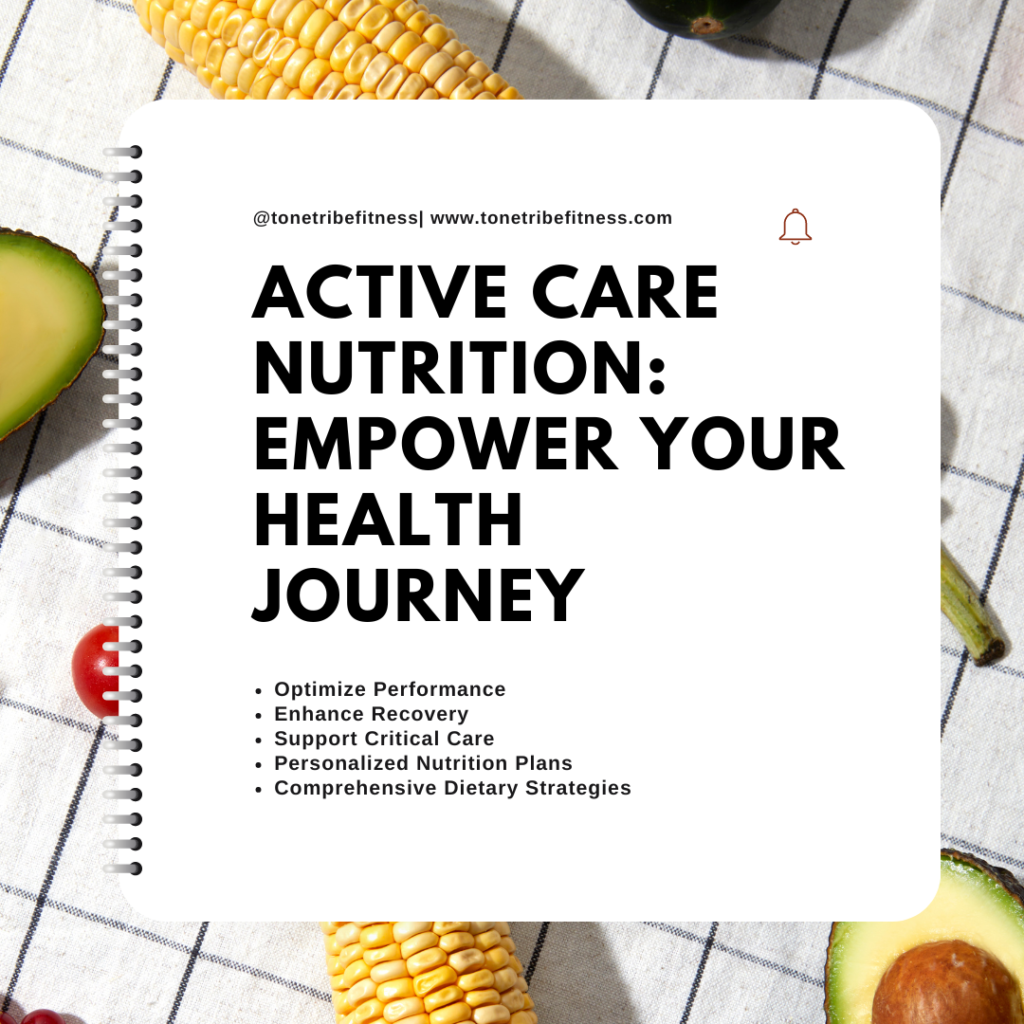Table of Contents
ToggleIntroduction
In today’s fast-paced world, maintaining optimal health and wellness can be challenging. Active care nutrition plays a crucial role in supporting individuals with varying needs, from athletes looking to enhance performance to patients in critical care needing specialized nutritional support. This article delves into the essentials of active care nutrition, with a particular focus on “active critical care liquid protein nutritional supplements.” Through case studies, examples, and detailed insights, we aim to provide a thorough understanding of this vital topic.
What is Active Care Nutrition?

Definition and Importance
Active care nutrition refers to a comprehensive approach to dietary planning and supplementation that supports the body’s physical and metabolic demands. It involves tailored nutrition strategies to meet the specific needs of individuals, whether they are healthy adults, athletes, or patients in medical settings.
Key Components
- Macronutrients: Carbohydrates, proteins, and fats.
- Micronutrients: Vitamins and minerals.
- Hydration: Adequate fluid intake to support bodily functions.
- Supplementation: Specific supplements to address deficiencies or enhance performance.
Understanding Active Critical Care Liquid Protein Nutritional Supplements
Active critical care liquid protein nutritional supplements are specialized formulations designed to provide high-quality protein and other essential nutrients in a readily absorbable liquid form. These supplements are crucial for patients who are unable to consume solid food or require additional nutritional support due to illness or recovery from surgery.
Benefits
- Enhanced Absorption: Liquid supplements are easier to digest and absorb, making them ideal for patients with compromised digestive systems.
- Convenient Administration: Can be administered orally or via feeding tubes.
- High Protein Content: Supports muscle maintenance and recovery.
- Balanced Nutrition: Often fortified with vitamins and minerals.
Case Study: Improved Recovery in Post-Surgical Patients
Background: A study involving 50 post-surgical patients examined the effects of liquid protein supplements on recovery outcomes.
Method: Patients were divided into two groups. Group A received standard hospital meals, while Group B received meals supplemented with active critical care liquid protein.
Results: Group B showed a 30% faster recovery rate, reduced infection rates, and improved overall nutritional status compared to Group A.
Conclusion: Active critical care liquid protein supplements significantly enhance recovery in post-surgical patients.
The Science Behind Protein in Critical Care
- Muscle Repair and Growth: Essential for repairing and building muscle tissues.
- Immune Function: Supports the production of antibodies and immune cells.
- Enzyme Production: Vital for metabolic processes.
Protein Requirements in Critical Care
Patients in critical care often have increased protein needs due to:
- Catabolic Stress: Illness or injury induces a catabolic state, increasing protein breakdown.
- Healing and Recovery: Higher protein intake supports tissue repair and recovery.
- Immune Support: Adequate protein helps maintain immune function, reducing the risk of infections.
Example: Protein Requirements in Burn Patients
Scenario: Burn patients require significantly higher protein intake to support wound healing and prevent muscle loss.
Recommendation: According to clinical guidelines, burn patients may need up to 2-2.5 grams of protein per kilogram of body weight per day.
Practical Applications of Active Care Nutrition
a) For Athletes
Nutritional Strategies:
- Pre-Workout: Carbohydrate-rich foods for energy.
- During Workout: Hydration and electrolyte drinks.
- Post-Workout: Protein and carbohydrate combination for muscle recovery.
Example: An endurance athlete consumes a protein shake with added carbohydrates post-training to replenish glycogen stores and promote muscle repair.
b) For Elderly Individuals
Nutritional Strategies:
- Balanced Diet: Emphasis on nutrient-dense foods.
- Supplementation: Calcium, Vitamin D, and protein supplements.
Case Study: An elderly patient with sarcopenia (muscle loss) showed significant improvement in muscle mass and strength after incorporating a daily protein supplement.
c) For Patients with Chronic Illnesses
Nutritional Strategies:
- Disease-Specific Diets: Tailored to manage symptoms and nutritional deficiencies.
- Liquid Supplements: For patients with swallowing difficulties or reduced appetite.
Example: A patient with chronic kidney disease uses a renal-specific liquid supplement to manage protein intake without overloading the kidneys.
Tips for Optimizing Active Care Nutrition
a) Personalized Nutrition Plans
- Assessment: Regular assessment of nutritional status and needs.
- Tailoring: Customized nutrition plans based on individual requirements.
- Monitoring: Continuous monitoring and adjustment of the nutrition plan.
b) Importance of Hydration
- Adequate Fluid Intake: Essential for overall health and nutrient absorption.
- Electrolyte Balance: Maintaining electrolyte levels to prevent imbalances, especially in active individuals and patients in critical care.
c) Integration of Technology
- Nutritional Apps: Track dietary intake and monitor nutritional status.
- Telehealth: Virtual consultations with nutritionists and dietitians.
Recommended Protein Intake for Different Populations
| Population | Recommended Protein Intake (g/kg body weight/day) |
|---|---|
| Healthy Adults | 0.8 – 1.0 |
| Athletes | 1.2 – 2.0 |
| Elderly Individuals | 1.2 – 1.5 |
| Critically Ill Patients | 1.5 – 2.5 |
| Burn Patients | 2.0 – 2.5 |
Conclusion
If you found this article helpful, be sure to check out our “Healthy Recipes Under 30 Minutes” and explore more tips on a “Healthy Lifestyle” here.
Active care nutrition is a multifaceted approach that plays a pivotal role in supporting health and recovery across different populations. Whether for athletes striving for peak performance, elderly individuals maintaining health, or patients in critical care requiring specialized nutritional support, the principles of active care nutrition remain essential. By understanding and implementing these strategies, individuals can significantly improve their health outcomes and quality of life.
Frequently Asked Questions
1. What are Active Critical Care Liquid Protein Nutritional Supplements?
Answer: These are specialized liquid formulations designed to provide high-quality protein and essential nutrients in an easily absorbable form. They are particularly useful for patients who cannot consume solid food or require additional nutritional support due to illness or surgery.
2. Why is protein important in critical care?
Answer:
- Muscle Repair and Growth: Essential for repairing and building muscle tissues.
- Immune Function: Supports the production of antibodies and immune cells.
- Enzyme Production: Vital for metabolic processes.
- Healing and Recovery: Higher protein intake supports tissue repair and recovery.
3. How much protein do different populations need?
Answer: Protein requirements vary:
- Healthy Adults: 0.8 – 1.0 g/kg body weight/day.
- Athletes: 1.2 – 2.0 g/kg body weight/day.
- Elderly Individuals: 1.2 – 1.5 g/kg body weight/day.
- Critically Ill Patients: 1.5 – 2.5 g/kg body weight/day.
- Burn Patients: 2.0 – 2.5 g/kg body weight/day.
4. Can you provide an example of a case study related to active critical care nutrition?
Answer: Sure! Case Study: A study involving 50 post-surgical patients examined the effects of liquid protein supplements on recovery outcomes. Group A received standard hospital meals, while Group B received meals supplemented with active critical care liquid protein. Group B showed a 30% faster recovery rate, reduced infection rates, and improved overall nutritional status compared to Group A.
5. How can athletes optimize their nutrition?
Answer:
- Pre-Workout: Consume carbohydrate-rich foods for energy.
- During Workout: Stay hydrated with water and electrolyte drinks.
- Post-Workout: Have a protein and carbohydrate combination to aid muscle recovery.
6. How can patients with chronic illnesses benefit from active care nutrition?
Answer:
- Disease-Specific Diets: Tailored to manage symptoms and nutritional deficiencies.
- Liquid Supplements: Ideal for patients with swallowing difficulties or reduced appetite, ensuring they receive adequate nutrition.
- Fish Food Recipes: 8 Delicious & Healthy Ways to Cook Fish at Home - June 10, 2025
- Can I Drink Coffee After Wisdom Teeth Removal? - May 24, 2025
- Active Care Nutrition: A Comprehensive Guide - June 12, 2024




